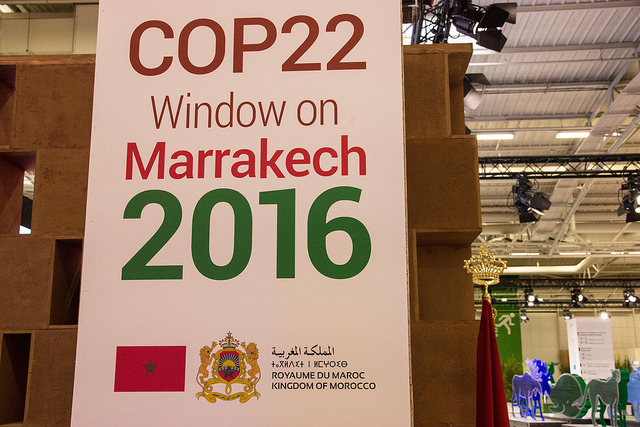I care about the safety and well being of my family, my friends and my community. I want to live on a planet that is healthy, strong and economically and environmentally resilient. We know that our future is being threatened by the climate crisis. So when I hear that new fossil fuel infrastructure is still being approved by the Canadian government despite mass opposition from Indigenous and non-Indigenous community members, in 2016, it frustrates me.
We face a hard deadline to tackle the climate crisis. Climate scientists overwhelmingly agree that surpassing two degrees celsius of warming threatens our very survival. After three decades of political leaders fumbling important climate targets, we know we cannot allow our elected officials to continue this way. It is no longer an option.
That’s why the historic Paris Agreement signed by over 190 nation states at COP21 last year marked a shift on the world stage: countries recognized that they can, and must, take ambitious measures to tackle a warming planet. The world has the technology to transition to a green economy, and these technologies are already becoming competitive with fossil fuels.
Canada has taken strides to address climate change this past year. At COP21, Canada recommended countries aim to cap warming at 1.5 degrees, and after a decade of the Harper government, that global ambition was refreshing. This year, for the first time in Canadian history, Canada implemented a national carbon price that will go into effect in 2018, after years of relying on patchwork provincial climate policies. Canada was also one of the over 70 countries that ratified the agreement just this month, and at COP22 in Marrakesh we will be there when the Paris agreement officially enters into force.
We have cause to celebrate, but signing deals is the easy part. All that progress will mean very little if we don’t make ambitious policy progress at home. We need to remember Canada has performed very poorly on its climate commitments — that is why the Climate Change Performance Index rated Canada in “very poor” standing last year (we were placed 56 out of 60 nation states, well below high emitters like the United States, China and India).
The federal government has to look beyond adopting Harper’s 2030 emissions reduction goal. We cannot afford to delay implementing an ambitious and enforceable federal climate action plan any longer. We signed the Paris Agreement with 190 other nations – but making it a reality is a global priority.
That is why Canada will have to:
-
Break up with fossil fuels. Our economies are carbon addicts, and that is a sign of an unhealthy system. We have to refuse any new fossil fuel infrastructures. That means saying no to Kinder Morgan, no to Energy East and no to pipelines, period. The evidence shows that major new export pipelines are not needed or wanted in Canada, so it’s a no brainer!
-
Decarbonize our economy completely by 2050. That isn’t overly ambitious — it’s necessary if we want to do our fair share and keep global warming to two degrees. We should also be ambitious, and aim to keeping warming to 1.5 degrees by reducing our greenhouse gas emissions completely by 2030.
-
Ensure the transition off of carbon is justice-based. This involves a nation-to-nation relationship building with Indigenous peoples on whose land we live, including an honest implementation of the United Nation Declaration on the Rights of Indigenous Peoples. It also means providing sufficient employment insurance and skills training to workers seeking to transition out of the fossil fuel sector. If we build a green economy that leads to poverty and exclusion of marginalized voices, then we can hardly call the transition off fossil fuels a success story.
-
Pay its fair share for international climate finance commitments. Canada’s financial commitments must reach $4 billion by 2020 to reflect Canada’s fair share of the international agreed upon $100 billion goal.
-
Couple our national carbon price with flexible regulation policies. We are implementing a national carbon price, but that’s only half of the equation. For a national carbon price to stand on its own, we would have to get to $200 per tonne by 2030. Given the reluctance of governments around the world to impose high carbon prices to reduce emissions, we need to introduce regulation policies, such as eliminating existing subsidies to the fossil fuel industry, investing in renewables, transit, and green infrastructure, and going coal free immediately.
The reality is clear: COP21 marked a historic shift in the political landscape, and the Paris Agreement has been set in motion. It is unstoppable, and Canada needs to embrace climate leadership at home to make our international commitment a reality. COP22 is the turning point. We have no choice but to embrace ambition progressive policies if we want to be well-equipped to tackle the greatest threat to our generation.
Jennifer Deol is a South Asian youth living on unceded Coast Salish territory. She is an ice cream enthusiast and member of the Canadian Youth Delegation going to COP22 in Marrakesh.
Like this article? Please chip in to keep stories like these coming.
Image: Flickr/Climate Alliance Org



